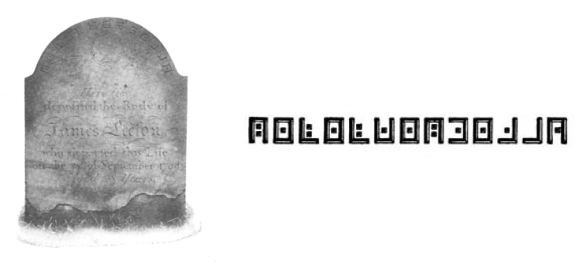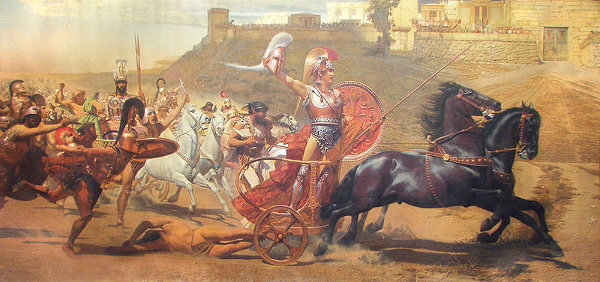Miami University French professor Howard Chace composed stories in what he called the “Anguish languish” to show the importance of intonation in conveying meaning. This example, “Ladle Rat Rotten Hut,” was written in 1940 and appeared subsequently in the Los Angeles Times. Read it aloud:
Wants pawn term, dare worsted ladle gull hoe lift wetter murder inner ladle cordage honor itch offer lodge dock florist. Disc ladle gull orphan worry ladle cluck wetter putty rat hut, end fur disc raisin, pimple colder ladle rat rotten hut.
Wan moaning rat rotten hut’s murder colder inset: “Ladle rat rotten hut, heresy ladle basking winsome burden barter an shirker car keys. Tick disc ladle basking tudor cordage offer groin murder honor udder site offer florist. Shaker lake, dun stopper laundry wrote, end yonder nor sorghum stenches dun stopper torque wet strainers.”
“Hoe-cake, murder,” resplendent ladle rat rotten hut, end tickle ladle basking an stuttered oft. Honor wrote tudor cordage offer groin murder, ladle rat rotten hut mitten anamolous woof. “Wail, wail, wail,” set disc wicket woof, “evanescent ladle rat rotten hut! Wares oar putty ladle gull goring wizard ladle basking?”
“Armor goring tumor groin murder’s,” reprisal ladle gull. “Grammar’s seeking bet. Armor ticking arson burden barter end shirker car keys.”
“O hoe! Heifer blessing woke,” setter wicket woof, butter taught tomb sheft, “Oil tickle shirt court tudor cordage offer groin murder. Oil ketchup wetter letter, an den — O bore!”
Soda wicket woof tucker shirt court, end whinny retched a cordage offer groin murder, hee picket inner widow end sore debtor pore oil worming wurst lion inner bet. Inner flesh, disc abdominal woof lipped honor betting adder rope. Zany pool dawn err groin murder’s nut cup an gnat gun, any curdled dope inner bet.
Inner ladle wile, ladle rat rotten hut a raft attar cordage end ranker dough bill. “Comb ink, sweat hard,” setter wicket woof, disgracing is verse. Ladle rat rotten hut entity bet rum end stud buyer groin murder’s bet.
“O Grammar,” crater ladle gull, “Wart bag icy gut! A nervous sausage bag ice!”
“Buttered lucky chew whiff, doling,” whiskered disc ratchet woof, wetter wicked small.
“O Grammar, water bag noise! A nervous sore suture anomalous prognosis!”
“Buttered small your whiff,” inserter woof, ants mouse worse waddling.
“O Grammar, water bag mousey gut! A nervous sore suture bag mouse!”
Daze worry on forger nut gulls lest warts. Oil offer sodden, throne offer carvers and sprinkling otter bet, disc curl and bloat Thursday woof ceased pore ladle rat rotten hut an garbled erupt.
Mural: Yonder nor sorghum stenches shut ladle gulls stopper torque wet strainers.




